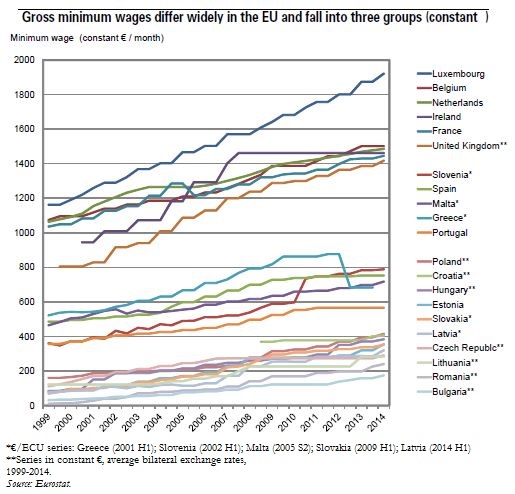Trésor-Economics No. 133 - Mapping out the options for a European minimum wage standard
Minimum wage standards in the European Union (EU) – when they exist at all – are highly heterogeneous, whether their levels are expressed in nominal terms or as a percentage of the median wage. Social partners and governments play different roles in the wage-setting process depending on countries, with varying rules and procedures for adjusting the minimum wage (frequency of adjustments and adjustment criteria).
There are currently seven Member States (Germany, Finland, Austria, Italy, Cyprus, Sweden and Denmark) that do not have a national minimum-wage standard. These countries do, however, apply industry-specific standards that are negotiated by social partners. These industry-level agreements generally cover a large share of workers and sometimes set the minimum wage standard at relatively high levels, and can thus be seen as approximating a national minimum wage. Germany however plans to introduce a national minimum wage by 2017.
Set at an adequate level, a European minimum wage standard could help to support living standards for the lowest-paid workers and improve the functioning of the European economy. The theoretical literature has shown that a well-calibrated minimum wage raises living standards for the poorest workers, without necessarily entailing negative effects on employment. In the European Union as a whole, a common minimum wage standard could lessen the prospects of social dumping and help prevent excessive wage competition.
The introduction of a European minimum wage standard could take the form of a minimum-wage floor, expressed as a percentage of each country's median wage. Member States would of course be free to set their minimum wage rate above the floor. Although Treaty-related legal provisions make it impossible to introduce such a standard in EU law, a political commitment by Member States would be a significant first step. Practical issues relating to the minimum wage–such as the rules and procedures for adjustment–should be one of the themes on the European social agenda, and discussed in close cooperation with social partners.
